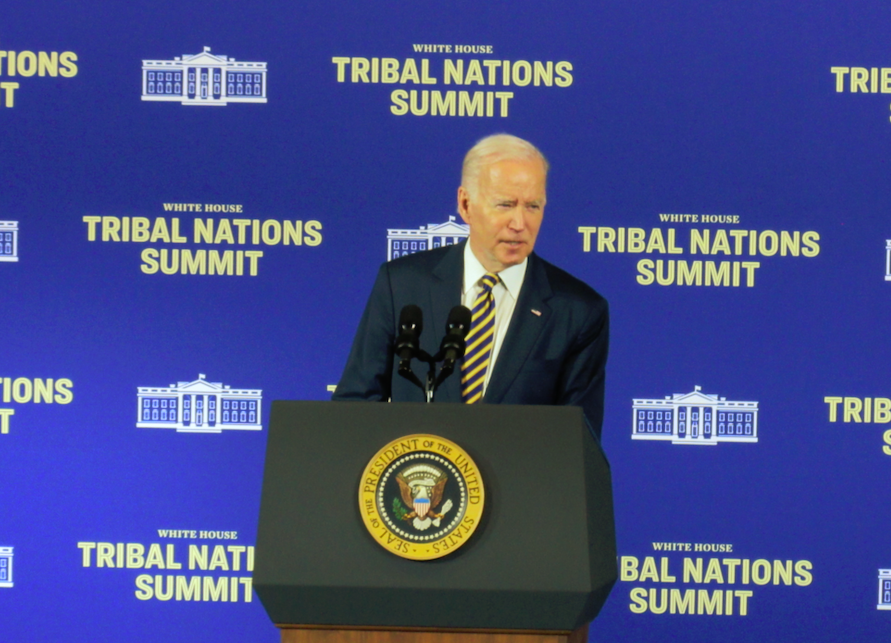
- Details
- By Levi Rickert
WASHINGTON — The White House Tribal Natons Summit began on Wednesday morning heard from President Joe Biden. Vice President Kamala Harris spoke the summit in the afternoon.
Some 400 tribal leaders and leaders of national Native American organizations were in attendance.
President Joe Biden addressed the crowd, discussing the work his administration has done to support Tribal sovereignty and announcing new initiatives to support Indian Country.
Secretary of the Interior Deb Haaland (Laguna Pueblo) also addressed the audience at the beginning of the day, sharing details about an Interior announcement this morning about new actions to support tribal sovereignty owed to education and economic development work between the Office of Strategic Partnerships and Indian Country.
The day's events also included remarks from Vice President Kamala Harris, Transportation Secretary Pete Buttigieg and other government officials.
The White House Tribal Nations Summit continues all day on Thursday, Dec. 1, 2022.
https://www.nativenewsonline.net/currents/photos-the-white-house-tribal-nations-summit#sigProId134bb1121d
More Stories Like This
Native News Weekly (August 25, 2024): D.C. BriefsUS Presidents in Their Own Words Concerning American Indians
Native News Weekly (January 18, 2026): D.C. Briefs
Federal Judge Orders ICE to Halt Use of Pepper Spray, Arrests of Peaceful Protesters in Twin Cities
Tunica-Biloxi Cultural Leader John D. Barbry Walks On
Help us defend tribal sovereignty.
At Native News Online, our mission is rooted in telling the stories that strengthen sovereignty and uplift Indigenous voices — not just at year’s end, but every single day.
Because of your generosity last year, we were able to keep our reporters on the ground in tribal communities, at national gatherings and in the halls of Congress — covering the issues that matter most to Indian Country: sovereignty, culture, education, health and economic opportunity.
That support sustained us through a tough year in 2025. Now, as we look to the year ahead, we need your help right now to ensure warrior journalism remains strong — reporting that defends tribal sovereignty, amplifies Native truth, and holds power accountable.
 The stakes couldn't be higher. Your support keeps Native voices heard, Native stories told and Native sovereignty defended.
The stakes couldn't be higher. Your support keeps Native voices heard, Native stories told and Native sovereignty defended.
Stand with Warrior Journalism today.
Levi Rickert (Potawatomi), Editor & Publisher


